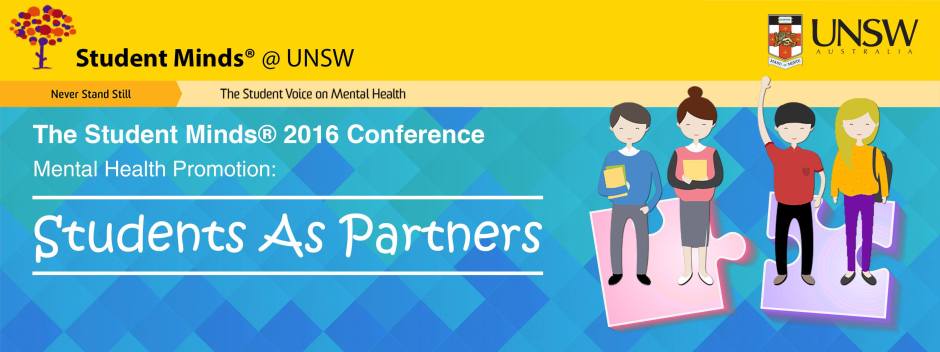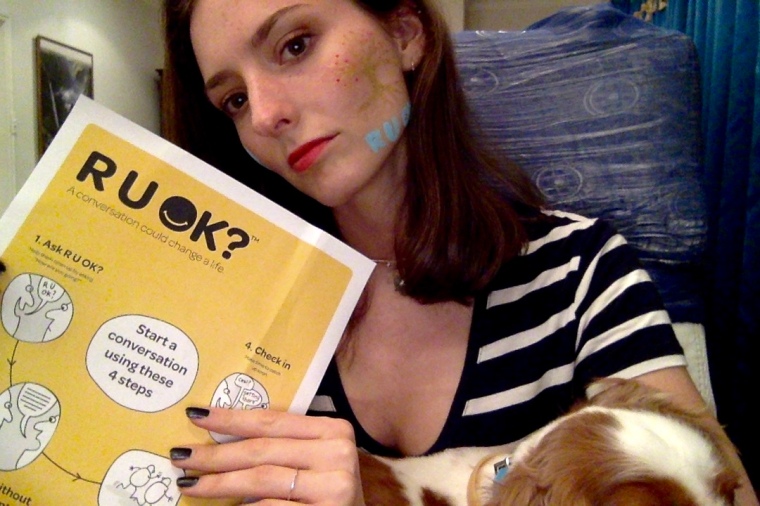This reading list is very personal to me, each book on it has helped me through certain times in my life when I needed it the most. The first book in particular was gifted to me by a very dear friend Geri, who also suffers from anxiety. I had just gotten out of a bad break up where I found out my partner had cheated on me and the experience severely triggered my anxiety and depression.
I found myself in constant memory loops that I couldn’t turn off. My anxiety was so bad that I could barely focus on anything or anyone. I would be in my head all day, to the point where I had to stop driving places after a particularly close call when I ran a red light at an intersection. It seemed impossible in those days to stay present.
I had insomnia at the time and I remember one sleepless night spotting the little yellow book on my bedside table. I spent hours reading the small book , meditatively following its instructions and feeling a sense of presentness and peace that I hadn’t felt in a long time.
I would turn back to the first page reading Thich Nhat Hahn’s simple words
“Breathing in, I know I am breathing in.
Breathing out, I know I am breathing out”
And each time I remembered how to breathe again.
1. Thich Nhat Hanh : You Are Here: Discovering the Magic of the Present Moment

Thich Nhat Han is a buddhist monk, author, and meditation master, who translates Buddhist thought and practice into an accessible form.
This book examines the powerful practice of mindfulness and the ways that it can transform our lives. He breaks the practice down into a number of simple steps including; awareness of breathing and walking, deep listening, and skillful speech. The book also offers insight into emotional healing and on how to manifest loving and compassionate relationships with those around us.
“Mindfulness means being here, present, and totally alive. It is true freedom—and without this freedom, there is no happiness.”
“When another person makes you suffer, it is because he suffers deeply within himself, and his suffering is spilling over. He does not need punishment; he needs help. That’s the message he is sending.” – Thich Nhat Hanh : You Are Here: Discovering the Magic of the Present Moment
2. Pema Chodron : The Places That Scare You
 Pema Chödrön teaches us that in difficult times we can choose how to react and how to let the events we have been through shape us. She provides the tools to deal with the problems and difficulties that life throws our way. The book is broken down into points, sequential stepping stones to the end destination of Bodhichitta.
Pema Chödrön teaches us that in difficult times we can choose how to react and how to let the events we have been through shape us. She provides the tools to deal with the problems and difficulties that life throws our way. The book is broken down into points, sequential stepping stones to the end destination of Bodhichitta.
Bodhchitta is a state of enlightened heart and mind of compassion and truth. She teaches us that this state of openheartedness and tenderness lies beyond fear.
The book teaches us to love the imperfections in our selves and others , master our ego and remain in the present moment.
“Each moment is an opportunity to make a fresh start.”
“When we touch the center of sorrow, when we sit with discomfort without trying to fix it, when we stay present to the pain of disapproval or betrayal and let it soften us, these are times that we connect with bohdichitta.”
― Pema Chödrön, The Places That Scare You: A Guide to Fearlessness in Difficult Times
3. Paulo Coelho : The Alchemist
 Paulo Coelho’s novel is one of the most loved tales around the world. The story follows a young boy who leaves his home land in Spain and his life as Shepard behind as he embarks on a journey to Egypt in search of treasure. He meets many obstacles and characters along the way who all carry lessons. But what begins as a journey to find worldy possessions turns into a journey of self discovery and of what lies within.
Paulo Coelho’s novel is one of the most loved tales around the world. The story follows a young boy who leaves his home land in Spain and his life as Shepard behind as he embarks on a journey to Egypt in search of treasure. He meets many obstacles and characters along the way who all carry lessons. But what begins as a journey to find worldy possessions turns into a journey of self discovery and of what lies within.
This is a transformative book, enchanting in its simplicity and unforgettable in its message.
“And, when you want something, all the universe conspires in helping you to achieve it.”
― Paulo Coelho, The Alchemist
4. Brene Brown : Rising Strong
 Brene Brown writes -the physics of vulnerability are simple: If we are brave enough often enough, we will fall. Sequel to her #1 New York Times bestseller Daring Greatly Brown examines how to get back up when we have fallen. She claims that by owning our stories of disappointment, failure, and heartbreak we harness the power to write a daring new ending.
Brene Brown writes -the physics of vulnerability are simple: If we are brave enough often enough, we will fall. Sequel to her #1 New York Times bestseller Daring Greatly Brown examines how to get back up when we have fallen. She claims that by owning our stories of disappointment, failure, and heartbreak we harness the power to write a daring new ending.
Struggle, Brené Brown writes, can be our greatest call to courage, and rising strong our clearest path to deeper meaning, wisdom, and hope.
“Vulnerability is not winning or losing; it’s having the courage to show up and be seen when we have no control over the outcome. Vulnerability is not weakness; it’s our greatest measure of courage.”
―
Brené Brown,
Rising Strong
5. Ekhart Tolle : The Power of Now : A guide to spiritual Enlightenment

One of the most famous spiritual guidance books of all time, Eckhart Tolle teaches us how to detach from our ego and reminds us how to be truely present.
Using accessible simple language and an easy question and answer format to guide us. This book has a transformative power and as cheesy as it sounds it can help you reassess the way you have been living your life.
“Time isn’t precious at all, because it is an illusion. What you perceive as precious is not time but the one point that is out of time: the Now. That is precious indeed. The more you are focused on time—past and future—the more you miss the Now, the most precious thing there is.”
― Eckhart Tolle, The Power of Now: A Guide to Spiritual Enlightenment
I hope you find knowledge, solace, joy and new ideas in these books as I have.
x X
BB
Via Good Reads













 Pema Chödrön teaches us that in difficult times we can choose how to react and how to let the events we have been through shape us. She provides the tools to deal with the problems and difficulties that life throws our way. The book is broken down into points, sequential stepping stones to the end destination of Bodhichitta.
Pema Chödrön teaches us that in difficult times we can choose how to react and how to let the events we have been through shape us. She provides the tools to deal with the problems and difficulties that life throws our way. The book is broken down into points, sequential stepping stones to the end destination of Bodhichitta. Paulo Coelho’s novel is one of the most loved tales around the world. The story follows a young boy who leaves his home land in Spain and his life as Shepard behind as he embarks on a journey to Egypt in search of treasure. He meets many obstacles and characters along the way who all carry lessons. But what begins as a journey to find worldy possessions turns into a journey of self discovery and of what lies within.
Paulo Coelho’s novel is one of the most loved tales around the world. The story follows a young boy who leaves his home land in Spain and his life as Shepard behind as he embarks on a journey to Egypt in search of treasure. He meets many obstacles and characters along the way who all carry lessons. But what begins as a journey to find worldy possessions turns into a journey of self discovery and of what lies within. Brene Brown writes -the physics of vulnerability are simple: If we are brave enough often enough, we will fall. Sequel to her #1 New York Times bestseller Daring Greatly Brown examines how to get back up when we have fallen. She claims that by owning our stories of disappointment, failure, and heartbreak we harness the power to write a daring new ending.
Brene Brown writes -the physics of vulnerability are simple: If we are brave enough often enough, we will fall. Sequel to her #1 New York Times bestseller Daring Greatly Brown examines how to get back up when we have fallen. She claims that by owning our stories of disappointment, failure, and heartbreak we harness the power to write a daring new ending.



















